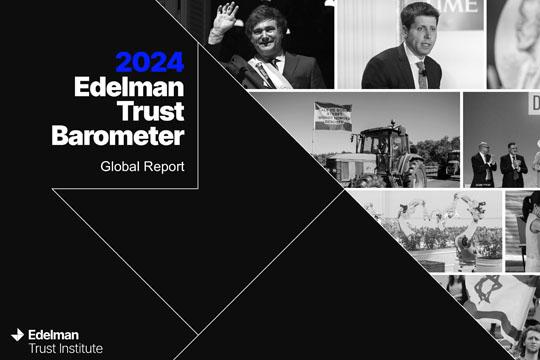- Global (EN)
- Africa (EN)
- Australia (EN)
- Belgium (EN)
- Brasil (PT)
- Canada (EN)
- Canada (FR)
- China (CN)
- France (FR)
- Germany (DE)
- Germany (EN)
- Hong Kong, China (EN)
- India (EN)
- Indonesia (EN)
- Ireland (EN)
- Italy (IT)
- Italy (EN)
- Japan (JP)
- Korea (KR)
- Latin America (ES)
- Malaysia (EN)
- Middle East (EN)
- Netherlands (EN)
- Spain (ES)
- UK (EN)
- Global (EN)
- Africa (EN)
- Australia (EN)
- Belgium (EN)
- Brasil (PT)
- Canada (EN)
- Canada (FR)
- China (CN)
- France (FR)
- Germany (DE)
- Germany (EN)
- Hong Kong, China (EN)
- India (EN)
- Indonesia (EN)
- Ireland (EN)
- Italy (IT)
- Italy (EN)
- Japan (JP)
- Korea (KR)
- Latin America (ES)
- Malaysia (EN)
- Middle East (EN)
- Netherlands (EN)
- Spain (ES)
- UK (EN)
- Politics has upended the business of brands as consumers buy and boycott to express their politics.
- Consumers expect more brand action on societal issues, and must feel that they share values with a brand to buy it.
- Brands must use a multi-local approach to navigate this complexity to their advantage.
Marketers have long known that to reach people you need to tailor your message to age, gender, income, and other demographics. But today, political orientation is just as central to how people think of products. Consumers are buying or boycotting brands to express their political power. The anti-woke movement is gaining momentum, pressuring brands to walk away from purpose or issues advocacy. The Israel-Palestine and Ukraine-Russia conflicts have reignited nationalism and led to adoption of local brands as a means of protest. Even if you do not seek out political issues, politics will come and find you. It’s not that brands have changed. Society has.
To a staggering extent, our new research shows, brands and politics have become melded in the public mind. The 2024 Edelman Trust Barometer Special Report: Brands and Politics surveys 15 countries across Asia, Europe, the Middle East, and the Americas. It finds that 78% of our 15,000 respondents believe Brands are “doing things that are political or politically motivated.” Six in ten consumers are buying or boycotting brands to express their politics. Everyday brand actions are seen as political: hiring influencers with political opinions, using social platforms that host extremists, and encouraging voting.
The immediate reaction by marketers might be to put your head down and let the storm pass. That would be exactly the wrong strategy. The question is not how to avoid politics but how to navigate the present complexity to your advantage. Not every brand needs to have an impact or purpose initiative but consider how politicization can abruptly color consumer perceptions.
There is a spike in brand nationalism since last year, which is particularly strong in the Middle East and Southeast Asia. This is directly attributable to the Israel-Palestine war, with 55% plus of respondents in Saudi Arabia, Indonesia, India, and UAE saying they boycott brands that support a side in the conflict. Nearly 80% of respondents said that they will not buy foreign brands because of the countries in which they are headquartered. Around three quarters of respondents in Saudi Arabia, Indonesia and India said that they were buying more of their own country’s brands instead of foreign brands than a year ago.
The U.S. is the poster child for brands needing to find their way through the hazardous minefield. While Republicans say brands do too much rather than too little on most societal issues, jobs are the exception — by a 2 to 1 margin, they want more action on fair pay and retraining than less. Democrats are generally in favor of brand action on issues, notably on climate, fair pay, and diversity, with two thirds of Democrats more likely to buy brands that commit to ending racism. Independents are mixed, strongly in favor of action on climate, but tepid on diversity and public health.
Globally, people still want more, not less, brand action. Eighty-four percent of consumers say that they need to share values with a brand to buy it. Respondents are much more likely to say brands should do more, not less, across societal issues including climate (5 to 1), fair pay (4 to 1) and diversity (2 to 1). Just as speaking up is a risk, so is silence: When brands say nothing about societal issues, some audiences assume they are doing nothing or have something to hide (Gen Z and the political Left both nearly 6 of 10). People demand value and quality from the brands they buy, but they’re also scrutinizing if they can trust the brand and, increasingly, its parent company. For global brands working in domestic markets, creating quality local jobs, following local laws, working with local suppliers, and adapting to local culture are top trust builders.
With 50 elections and over half of the world’s population going to the polls, and nearly 700 million doing so in India and Mexico in just the last week, establishing tighter yellow lines for marketing campaigns for each brand’s permission space is a necessity. Recognize the inherent overlap of brand and corporate reputation (McDonald’s issues in the Middle East stemming from conflict in Gaza). Compete as multi-local as well multinational by demonstrating positive local impact and cultural sensitivity (Modelo campaign lauding work ethic of Hispanics in the US). Withstand possible political blowback by staying true to your core competences (Dove campaign to keep young females in sports). Prioritize your core consumer, recognizing the importance of brand to personal identity (Ikea’s campaign to encourage recycling of furniture through Buyback Friday). Encourage intellectual diversity and make a point of including people with different politics in strategy discussions to help think through and frame campaigns. Most of all, stand your ground because marketing matters. Brands are playing an essential role in a society riven with fears, providing hope and inspiration for the future.
Richard Edelman is the CEO.





